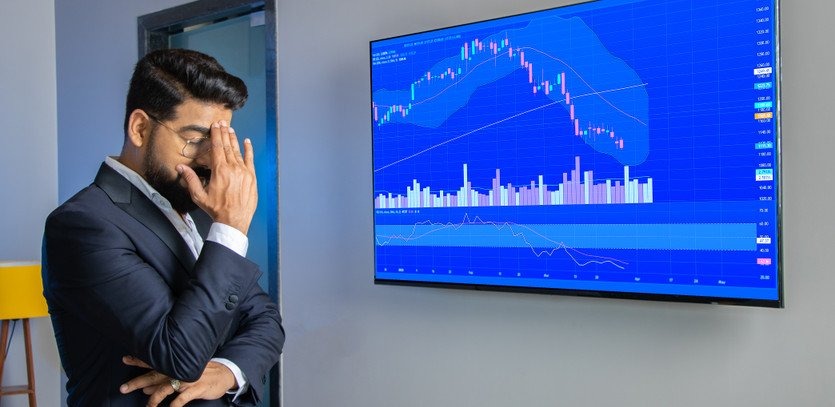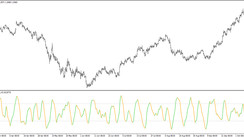Every trader, at some point, grapples with the tendency to exit trades too soon. It's a hurdle that can turn a promising trade into a missed opportunity. This common issue surfaces in various forms, and understanding them can be the first step in overcoming the habit.
Frequently, traders will exit a trade at break-even due to fear of loss. Despite the apparent lack of damage, the commission or spread paid to the broker turns it into a loss. And more often than not, a considerable portion of these trades would have yielded profits if held longer.
Another common scenario is exiting a trade with a small profit, way before the planned profit target, out of fear of market reversal. In most cases, these trades go on to hit their initial targets and even exceed them, causing traders to leave potential profits on the table.
Often, traders also exit trades prematurely, taking partial losses before the stop loss is reached. They may do so for any number of reasons, often arbitrary. In these situations, the market often takes a turn, and the trade that was exited prematurely could have been profitable.
Lastly, the inability to pyramid into positions - adding to winning trades - can also lead to early exits. Traders may fear a market reversal and choose to exit these larger positions prematurely, often missing out on the potential for increased profits.
Understanding of The Key Factors Leading to Premature Trade Exits
Unpacking the intricacies of early trade exits involves looking beyond the surface to understand the core underlying factors. Let's delve into a detailed exploration of the four significant contributors.
1. Inadequate Trading Procedure and Misunderstanding of Market Realities
Many traders plunge into the markets with an unclear trading plan, lacking knowledge of how to properly navigate entries, exits, and trade management. The result is often premature exit from trades, driven by anxiety, impatience, and a misguided desire for control.
Spending excessive time monitoring trades can create an environment ripe for spontaneous, poorly reasoned decisions. Traders who've yet to adopt a 'set and forget' approach, allowing the market to dictate the course of trades, tend to exit prematurely frequently.
Moreover, it's crucial to realize the value in allowing the market to guide your exits. This approach means surrendering the illusion of control, instead choosing to align with the market's flow. You can't forecast the trades that will bring substantial profits. By letting the market guide you, you put yourself in a position to benefit from significant movements when they arise. It's important to remember that fortunes in trading are made from capturing significant market moves, not from grabbing minuscule, emotionally-driven profits.
Another aspect that traders often overlook is the extent of a trade's potential journey. Many times, a favorable move or trend can extend far beyond your initial expectations. While beginners might be busily predicting trend reversals, seasoned traders happily extract substantial gains from steady market trends.
Over-leveraging is a notorious contributor to early trade exits. When you place a large chunk of your capital at risk in each trade, every market tick could feel like a life-or-death situation. The heightened emotional state can drive you to secure any profits prematurely and exacerbate your fear of losses. It's essential to adjust your risk per trade to a level that doesn't disrupt your emotional balance and sleep quality.
2. The Role of Recency Bias
Recency bias, where our most recent experiences influence our decisions more than older ones, plays a considerable role in our trading behavior. This bias often manifests after a series of losses, leading to an overestimation of market risks and undermining faith in your trading edge.
The reality is that a trading edge becomes apparent over a large series of trades. It's important to understand that the outcome of your most recent trade, or even a few previous trades, should not sway your decision-making process for future trades.
3. Trading Psychology (Mindset)
Your mindset plays a fundamental role in your trading decisions. Unfortunately, many individuals enter the trading world expecting quick riches. They often make drastic decisions, like quitting their jobs, based on this misguided belief.
However, the reality is that only a small percentage of traders succeed in the long run. To be part of this successful group, you need to break from the pack and develop a mindset rooted in reality. Trading success is the product of consistent, disciplined actions over time. Fast fortunes are rare; instead, slow and steady tends to win the race in trading.
4. Belief Systems and Past Experiences in Life
The impact of one's belief systems and past experiences on trading actions should not be underestimated. These elements can often subtly, yet significantly, shape our attitudes towards money, trading, and wealth creation. Unfortunately, these influences can also contribute to prematurely exiting trades.
Some traders might approach the market with pre-existing expectations based on their personal narratives or belief systems. Thoughts like "I've always been financially struggling, so I'll probably continue to do so" can often infiltrate a trader's mindset, particularly after a few losing trades. Such negative thoughts can set in motion a cycle of poor trading habits that lead to more losses.
On a broader scale, personal beliefs around topics like money, speculation, and wealth can also hinder one's ability to let trades turn into big winners. If you are generally skeptical or carry negative views on earning money through speculation, you might struggle to trust the trading process. Sometimes, these influences can operate subconsciously, subtly affecting market decisions without your full awareness.
The takeaway here is that successful trading requires an in-depth understanding of not just the markets, but also yourself. Mastery of both is essential. Without addressing the biases and faulty logic that could stem from your belief systems and past experiences, your trading proficiency alone won't guarantee success. Conversely, without understanding your trading strategy and the markets, personal mastery will not suffice.
The best approach is to enter trading with an open mind, almost like a blank slate, ready to learn and adapt. While it's true that only a fraction of traders reap substantial profits from speculating, my aim is to assist you in being one of those successful few. However, the first step in this journey is to set aside any preconceived notions about trading and approach the process with an open, receptive mindset.
Strategic Approaches to Prevent Premature Trade Exits
Avoiding premature trade exits is not a herculean task. It involves a combination of the right knowledge and self-discipline. The first step is to create a well-defined trading plan that outlines your trade exit strategy and commit to following it despite market fluctuations. Understanding the power of the 'set and forget' trading strategy and being able to distance yourself from the market when your trades are live is vital.
Distract yourself, find a hobby, or do anything that keeps you from excessively monitoring the screens, especially when you have live trades. Over-watching can lead to emotional decisions, which often result in premature exits.
Implementing a trading journal can also be a beneficial tactic. This practice allows you to document all your trades and their outcomes, offering you a clear picture of your trading patterns over time. The journal serves as a tangible accountability tool, helping you to identify areas for improvement.
Finally, cultivating a habit of regularly reviewing trading affirmations can help. These affirmations can serve as reminders of the core principles you need to uphold in your trading journey. Moreover, they can aid in developing a disciplined trading psychology, providing reinforcement of positive habits and mindsets that contribute to long-term success in trading.





